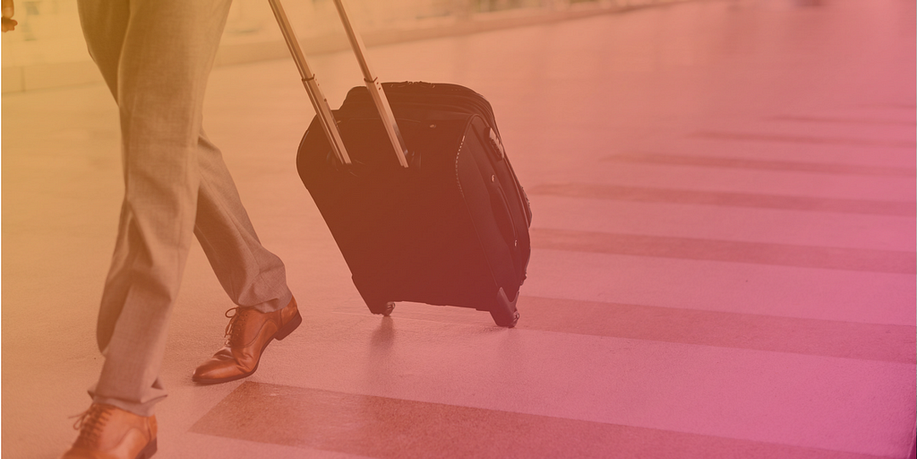
I am a patient and patient advocate.
For the last two weeks I have been on the road in three different cities at three different conferences. I traveled between the east coast and west coast by planes, trains and automobiles. I transferred between 5 different lodging accommodations, walked for miles and miles, and got meals where I could. This may sound commonplace to many business travelers, but there is privilege in this work. This lifestyle excludes many, and when it comes to patient advocacy, it is crucial to recognize this.
Many realize the financial burden of attending these meetings. A patient cannot be expected to pay the conference registration out of pocket — their employer isn’t covering it and they can’t write it off. Some conferences are becoming Patients Included accredited, which waives registration fees for patients. Yet these patients are still responsible for the cost of travel, accommodations, missed income and family support while they’re away. This is not feasible for most.
Of course, intertwined with financial privilege are the racial and ethnic inequities that exist. But when it comes to patient advocacy, there is more we’re leaving out of the conversation. We must pause and recognize the privilege of being able to get out and advocate.
As my co-founder, Ronnie, said to me “if I traveled like you did, it would literally kill me.” Ronnie has cystic fibrosis, and is a rockstar advocate, but constantly being on the road is not for him.
Which brings me to two points I want to make before continuing:
- Not all advocacy has to be done in person — it does not. But to the healthy and able-bodied folks, this is a reminder that just because people are not physically present does not mean that they should be forgotten.
- There is a rich history of activism of those with physical disabilities out fighting for their rights and lives. The ACT UP HIV/AIDS movement of the late 80s, and the ADAPT disability rights movement of today show that it’s not that people are incapable, they just face challenges that others may take for granted.
Physical Privilege

As someone with a 33 year history of arthritis, I am aware of the physical privilege I have with my disease controlled on my current treatment regimen. Yet there have been times in my life when I have been unable to walk, too sick to travel, or too fatigued to engage.
Getting around
The physical demand of attending conferences cannot be overstated. I attended two massive conferences back to back, HIMSS and SXSW. Both involved significant walking, and veteran conference goers cautioned newbies to wear comfortable footwear. But to many with disabilities, footwear alone does not solve the problem.
People with disabilities may face ambulatory challenges, some which require assistive devices. Additionally, some patients may have oxygen tanks or other medical equipment in tow.
Participating
It takes work being an advocate, often muscling to be heard and respected amongst the professionals. And those with visual or hearing impairments may be left out of these meetings completely.
Travel
Those with accessibility needs are sure to spend extra time and energy navigating venues, lodging and travel. If you’ve ever traveled with needles, have a medical device implant, or had to wait for wheelchair transport at the airport, you’ll know to build in a buffer to make sure you’re not delayed.
Diet
While many may try to stick to a specific diet, it is often a choice an individual makes. For some, dietary restrictions are for religious reasons, and for others — their lives depend on it.
People with diabetes, celiac disease, or severe food allergies are often left fending for themselves amongst the croissants, sandwiches, energy bars and cookies. Getting food they can safely eat may take extra planning, cost more to purchase meals, or leave them hungry when the former get to be too much.
Germs
Many patients are immunocompromised, either from treatment or as part of their condition. Handshakes can be terrifying in this position, but so too is being in a room, plane or other confined space with someone sneezing or coughing. I’m a big fan of fist bumps at meetings to stop the spread of germs.
All the other privilege
When it comes to advocacy, we also need to think about the privilege associated with finding one’s voice. It could be a supportive teacher or parent. It could be access to programs or networks that helped elevate an individual. The list goes on.
When I think of my own life, I can think of many instances of privilege. I’ve worked hard, but I know I started at an uneven playing field. I grew up middle class and my parents could afford dance lessons and theater camp in the summer, which surely set the stage for me being comfortable as a public speaker.
I also had family members to look up to who went to graduate school. And while I’ll be paying off student loans for the rest of my life, completing graduate school opened doors for me.
I’m sure that I am missing even more areas of privilege…because of my privilege, they aren’t obvious to me.
Call to action
I challenge you to examine your life and all the privilege in it. Even outside what is culturally in vogue to examine (but please do that too!). Privilege exists, and we can’t change the past but we can try and level the inequities of the future.

Consider…
-
How are you acknowledging those who are not present in those conversations?
-
How are you finding other ways to engage those individuals, before during and after meetings?
-
What might your company do to sponsor resources to make it possible for more patients to be “present” (physically or virtually)?
-
How are you using your privilege to help make space for others?
Savvy Cooperative was formed as a way of recognizing our privilege and the opportunity to help elevate others. We advocate for diverse voices to be heard and fairly valued so that more individuals have opportunities to engage.
March 19, 2018
.png?width=300&height=69&name=SavvyCoop_HorizontalLogo_LargeFormat%20(1).png)